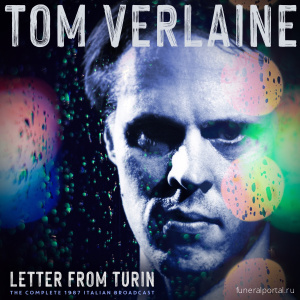A recent burial with a limited number of people
The COVID-19 pandemic is starting to take its toll on the funeral service industry in Jamaica with major establishments in Kingston and St Catherine, now faced with a backlog of bodies awaiting burial.
With social distancing and a restriction on the number of persons allowed to gather, funeral directors, who spoke with the Jamaica Observer last week, said most of their clients were postponing burials, leading to a “piling up” as one funeral director put it.
“Most persons are waiting on this thing (pandemic) to pass and the deceased are not being buried,” said Michael Jones, funeral director at the Jones Funeral Home in Kingston.
“The amount of funerals has reduced and the bodies are here piling up. When this is over, all these persons are going to want to bury their dead at one time which is only going to cause a backlog,” Jones lamented.
The economic impact of the pandemic has also made it harder on families to pay for burials. “Some persons are on hard times and waiting on family members abroad to pay for the funeral,” Jones stated.
The businessman fears, however, that he will soon run out of space to store bodies if families continue to wait indefinitely to bury their loved ones. “My fear is that if this situation continues, we are going to have a space problem where storage is concerned,” he said.
Jones also indicated that families have been struggling to adjust to the idea of having a small funeral service with only a few clients choosing to go ahead with burials.
He implored persons to adjust as much as possible, given the current crisis. “We can't do it the traditional way anymore with a huge gathering because we are in a pandemic.
“Sunday coming I have one funeral and most of the family members are overseas and they are still going ahead with just a few persons attending. I would be happy if other persons did the same,” Jones said.
The trend of families postponing burials is starting to affect business.
Gordon Chuck, funeral director at Sam Isaacs and Sons Funeral Home in Spanish Town, said that some families have been downgrading their packages. Most customers, however, are choosing to wait.
“Funerals that should have taken place are not taking place and this has put a strain on our capacity to keep the bodies. All of my refrigeration units have to be on and so expenses are through the roof. Storage costs are through the roof,” said Chuck.
“Persons are postponing until things go back to normal, so it is affecting us as it relates to storage as well,” he added. “Other families are either downgrading their packages and just having the small, intimate 10-person service with immediate family with plans to have a regular, large funeral at a later date. You have situations, too, where people are going straight to the burial ground.”
Service costs related to floral arrangements and programmes have also been reduced. “We advise against all of that. The package itself we downgrade in consultation with the family.
“What I have been doing is work with the families as much as possible. I try to minimise storage costs to the family. We cannot force the families in either direction, we can only advise them. Whatever they want, we have to give them so if everybody is waiting it out, we will just have to facilitate that,” he said.
Things are also looking dismal at House of Tranquillity in Kingston, where funeral director Joseph Cornwall said there has been a sharp dip in the number of burials each week.
“Normally we have up to 40 funerals per week, but right now burials are down, and we have a backlog of bodies waiting to be buried.
“Because of the situation, families are employing a wait-and-see attitude,” said Cornwall.
As the Government contracted mortuary for Kingston, St Andrew and St Thomas, Cornwall said his facility is equipped to store a large number of bodies. He admitted, however, that with families putting off burials, storage will soon become an issue.
“We are seasoned in what we do but if we are not having the burials then we will soon have a space problem. If we are taking in bodies and not burying, then we will be in serious health problems,” he said.
Cornwall argued that indefinite refrigeration will create other problems.
“We can have issues if we wait too long to bury. The bodies will start to break down or become too hard to dissect or cut into.
“While refrigeration can keep the body for a certain period it cannot be indefinite,” he said.
Cornwall argued that the decision by families who choose to wait is tied to the culture of Jamaicans wanting to have large funerals. “Funerals in Jamaica is a lot of the times for the show and the fashion. So you have a lot of families, who if their loved one had a lot of connections, they want to have a big funeral,” he said.
Meanwhile, some families have been adjusting to social distancing requirements by skipping the funeral service altogether. “Those funerals that are still happening just go straight to internment but what happens is that because only a small number of persons can attend,” he said, indicating that the cost for internment remains the same.
“We haven't laid off any staff and we still have to cover utilities and building maintenance and maintenance of the cold storage,” Cornwall said.









